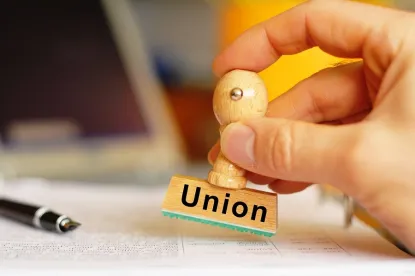How the NLRB treats employer statements made to employees in the context of union organizing or other protected activity has been a frequent topic of discussion. While the actual case law analyzing the coerciveness of an employer statement has not changed, the lawfulness of the statement often depends on the make-up of the Board at the time the case is reviewed. In the last few years, we have seen how the NLRB had a tendency to rigidly treat an employer’s statement as coercive if it was made in the context of organizing. This is true of employer questions to employees that touch on organizing. For example, in recent past the NLRB found an innocuous question to an open union supporter to be unlawful even if though there was no hint of actual coercion.
In Johnston Fire Services, LLC, 367 NLRB No. 49 (January 3, 2019), the employer fired an employee during an active union organizing drive. During the termination discussion, the employer asked whether the employee had seen the union organizer. The Board ruled that this question was not unlawful interrogation given the overall circumstances.
Background – Small Voting Unit – Hotly Contested Organizing
The employer, an installer of sprinkler systems, had six employees performing this work. The union sought to represent the six employees and filed a petition for a vote. During the election campaign, the employer terminated two employees. Although the union filed unfair labor practice charges over the terminations, and despite the fact 33 percent of the voting unit had been discharged, the union went ahead with the election. The resulting tally of ballots was 2 votes for the union, 2 votes for the employer and 2 challenged ballots (the two discharged employees).
The General Counsel issued a complaint over the discharges and a variety of alleged 8(a)(1) statements, including the employer’s “interrogation.”
Alleged Interrogation Occurred During Termination Meeting
One of the employees in the voting unit had been previously counseled for tardiness. During the campaign, the employee showed up late to work and encountered the owner of the employer in the parking lot of a job site. The owner immediately terminated the employee. The discussion between the owner and the employee was the subject of the unfair labor practice allegation for interrogation. During the discussion, the employee asked if he was being fired for speaking with the union organizer. The employer insisted the employee was being fired for his attendance but in the course of the conversation asked the employee if he had seen the organizer.
The General Counsel issued a complaint alleging this question amounted to unlawful interrogation.
ALJ Dismisses
The ALJ ultimately dismissed all allegations in the complaint, primarily because the testimony just did not support unlawful discharges.
As to the interrogation, the ALJ conducted a very thorough analysis of the question using the factors set forth in Rossmore House, 269 NLRB 1176, 1178 (1984), where the Board held that the coerciveness of an alleged statement or question must be evaluated under the totality of circumstances. Specifically, the Board applies five factors:
- The background, i.e., is there a history of employer hostility and discrimination?
- The nature of the information sought, e.g., did the interrogator appear to be seeking information on which to base taking action against the individual employees?
- The identity of the questioner. i.e. how high was he in the Company hierarchy?
- Place and method of interrogation, e.g. was employee called from work to the boss’s office? was there an atmosphere of “unnatural formality”?
- Truthfulness of the reply.
Applying these factors, the ALJ found that there was no history of hostility against unions. The nature of the information sought was not something to be used to take action against the employee because the decision to terminate already had been made and communicated. While the employer, as the “owner,” was the highest ranking official, the ALJ found this factor did not support a violation because the owner often performed work alongside the employees, and the employer was very small. The fact the question was asked in the parking lot of a worksite, as opposed to a manager’s office, did not lend itself to being too formal. The ALJ found the employee answered truthfully, which meant he felt he had nothing to hide.
Board Affirms
The NLRB affirmed the dismissal of the interrogation allegation noting that the employer “had already made the decision to terminate both employees for attendance issues before learning that they had engaged in protected activity.”
Takeaways
An employer’s actions in terminating a substantial percentage of a voting unit during an organizing election campaign are going to be scrutinized very carefully by the NLRB. In this case, the terminations were deemed to be lawful and so the employer’s question was probably easier to dismiss.
Still, the same analysis should be applied by the Board no matter the circumstances. The law concerning evaluation of an alleged interrogation is over thirty years old. The factors set forth in Rossmore House are subject to interpretation, of course, but it is nice to see a thorough analysis of how each factor was applied by the ALJ. This can give some guidance as to how future such allegations should be analyzed. Of course, as noted, the make-up of the Board matters. This is one of those cases where the outcome might have been different if it had reached the Board a couple of years ago.



 />i
/>i

